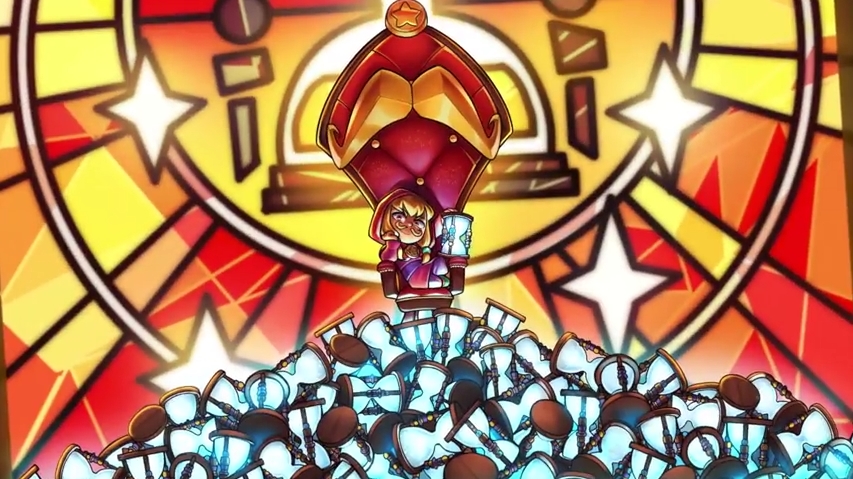
This article originally ran under a different banner/website in September of 2019 and is now being here re-uploaded for purposes of convenience and consolidation. Please enjoy.
HEAR YE!!! HEAR YE!!! MY LOYAL FOLLOWERS!!! I, the Video Game Doomsayer, am sure many of you think our fight against excessive monetization is over. It would certainly seem that way after the British Digital, Culture, Media and Sports (DCMS) committee published an 84-page report on immersive and addictive technologies. While many, including myself, were dancing in celebration of the British government seeing through the publisher’s lies, a new foe is appearing over the horizon. Many publishers have been feeling the heat that comes with having loot boxes in their titles. Lately, only Call of Duty and sports titles have been brazen enough to stick to their loot boxes, but many live service games such as Fallout 76 and Ghost Recon: Breakpoint have made alliances with this new foe. A foe that is going to have a bigger impact on the medium. Games will morph from colorful slot machines into drab bog-standard slogs. I am of course referring to timesaving microtransactions.

Now, this is not a novel concept. Microtransactions have always been designed to weigh on a player’s patience to get them to impulse spend. All in the name of saving time. Lately, more content is being shaved off and sold back to us. While this used to be something like costumes or side missions, lately it has been the progression systems. Rather than reward players for progressing through the game, they drag out these progression points to wear the player’s patience down. This mindset can be seen as far back as 2013, where Erik Olsen, a producer at Crytek, tried to convince EuroGamer the microtransactions in Ryse: Son of Rome weren’t sinister:
“It came up in focus testing and it was recommended. What if I wanted to buy this? Well, you could grind. Well, don’t have grind be your answer. Okay, fine. Then you can pay a few bucks.”
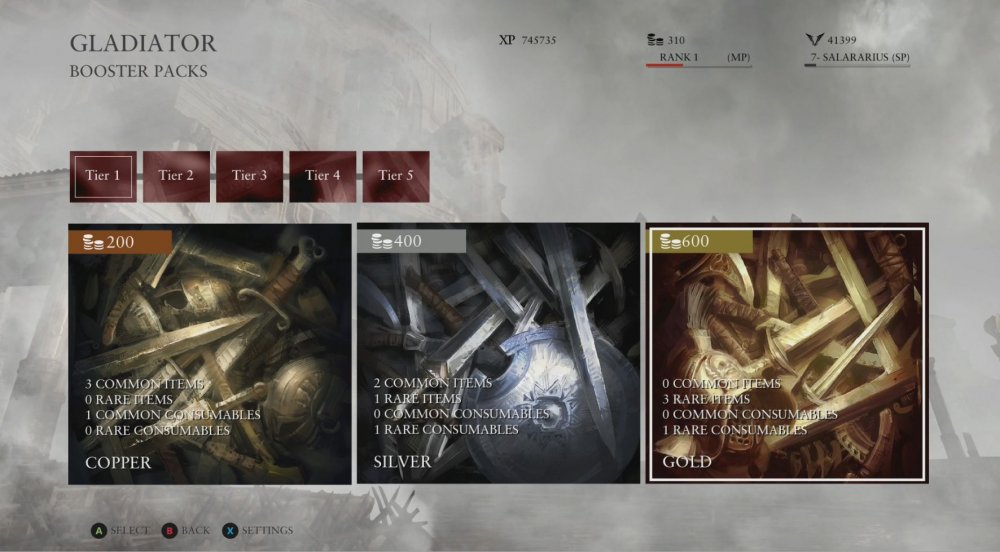
Even six years ago publishers were injecting grind into their games to siphon additional cash from players. It has been no secret that publishers have never been satisfied with mere game sales revenue. Publishers have discovered over the years how lucrative impulse spending can be. They have weaponized it against players. Removing more and more content hoping you will continuously fork over money rather than grind for it on their artificial treadmills.
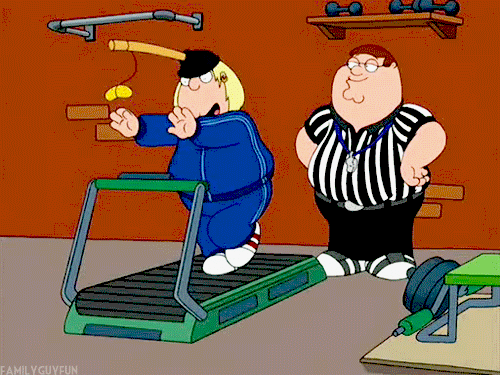
Fast forward to the dark days of 2019 and you will see how far the medium has fallen. Games have sacrificed being rewarding experiences in the name of the almighty dollar. No other company has embraced this idea with as open arms as Bethesda. With Fallout 76, Bethesda has performed the fastest heel turn I have ever seen a Triple-A company perform. While I have talked ad nauseam about how Bethesda frankensteined Fallout 76 to chase the live service trend, what I have found most appalling has been the recent additions to the Atomic Shop.
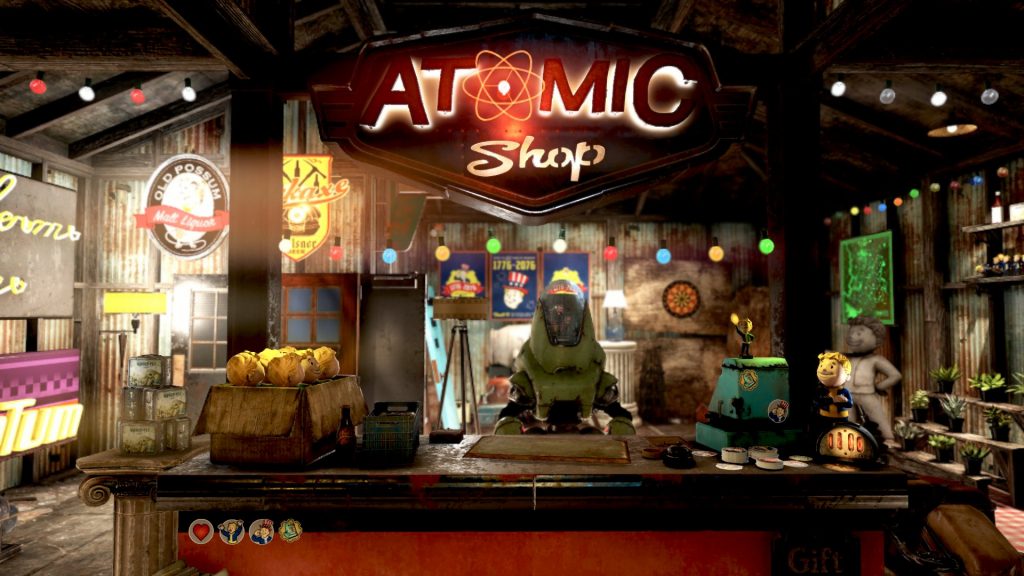
Back in April, Bethesda stated they would be adding repair kits to the Atomic Shop. Many players were concerned and confused especially when Senior VP of Marketing, Pete Hines, stated the Atomic Shop would only contain cosmetics. While Bethesda promised players the repair kits aren’t a pay-to-win mechanic, players definitely felt like Bethesda was trying to sell them a convenience. It felt especially underhanded when players noticed the same patch that introduced the repair kits, also made armor and weapons degrade faster.
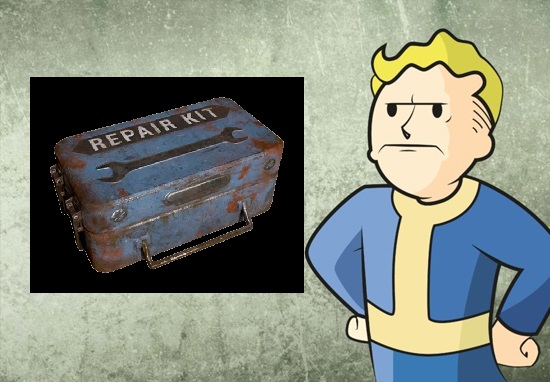
Just a month ago, Bethesda decided to add a refrigerator and scrap bot to the cosmetic-only atomic shop. The refrigerator is designed to delay the rate at which your meat spoiled and the scrap bot would venture out looking for crafting materials. While not game-breaking, it certainly saves time when it comes to hunting for meat and scrap. Rather than try to minimize the time you would spend hunting for crafting materials, Bethesda has created a problem hoping to sell you the solution. I, for one, truly fear these types of microtransactions will succeed the loot box model in the years to come.

One company that has already embraced the timesaver microtransactions is Ubisoft. It has become standard for Ubisoft to hack off sections of their game to sell back to the players. I am not referring to the usual side mission, but game balance as well. Ubisoft stripped Assassin’s Creed: Odyssey of any sense of balance in exchange for selling experience boosters. A move that shows Ubisoft doesn’t care to provide a balanced experience. The experience boosters will allow you to over-level and overpower the game or it will fix the progression that would leave you under-leveled. Either way, Ubisoft is hoping to sell you a solution to a problem they made. They did something similar in Far Cry: New Dawn. You had the choice of grinding for the best weapons or paying a few extra for those weapons. Once again, throwing gameplay progression right out the window for a few extra pennies.
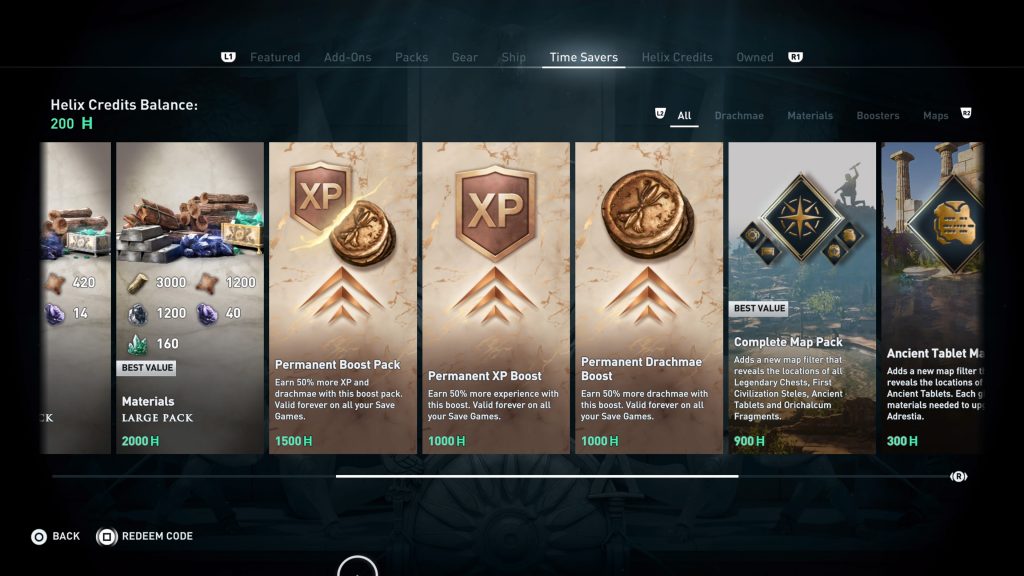
Finally, Ubisoft has attempted to push the boat out further with Ghost Recon Breakpoint. Along with having an avalanche of specials edition that Ubisoft is known for, Ghost Recon Breakpoint is littered with microtransactions. You could almost hear the game showcasing guns and cameos like a Texian auction. From Assault Rifle bundles to an Underbarrel bundle, Ghost Recon Breakpoint is happy to allow you to purchase these items rather than have you simply play the game. What really has me sighing in exhaustion is the page in the store titled Time Savers. This page contains Crafting material bundles, Weapon Upgrades, and Skill Points. You know Skill points, awards for completing challenges in-game, and allow your characters to unlock new moves? Well, now Ubisoft is hoping that you will handover over more money so you don’t have to play the sixty-dollar game that you just bought. While I will admit Ubisoft has removed the Time Savers page, it still holds a dark omen for the future of video games.
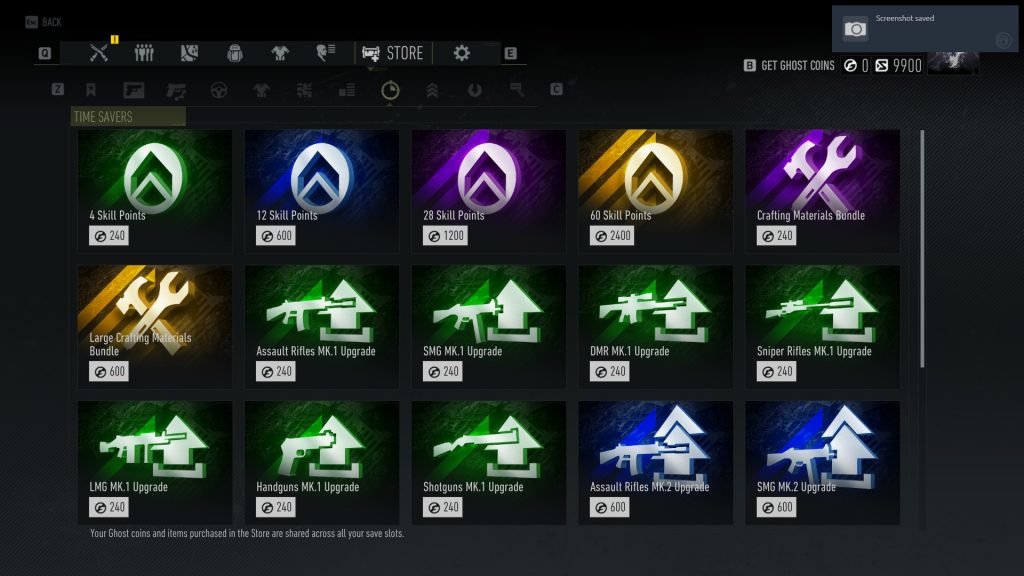
I remember a time when people used to say that video games were a waste of time. I used to argue that video games were just as worthy of your time as movies, books, or TV shows. I still hear the roar of the crowd as my friends and I rocked out to Green Grass and High Tides. I balled my eyes out at the end of Marvel’s Spider-Man. I still stand by my opinion that the best storytelling twist comes from a game from 2007 called Bioshock. Video games can tell stories and evoke emotions as well as any TV show, book, or film, but lately, they aspire to be arcade games that consume quarters. Soon publishers will be demanding games to play themselves as you continuously feed the game money. This form of monetization cannot be tolerated. It is poisoning the medium. This dark future of games selling time savers must be stopped. Heed my warning or the end of games that fascinate or enthrall players will be nigh.

Sources:
Blinkk8704. “r/GhostRecon – Ghost Recon Breakpoint First Look: Monetisation.” Reddit, https://www.reddit.com/r/GhostRecon/comments/dbav23/ghost_recon_breakpoint_first_look_monetisation/?utm_content=title&utm_medium=post_embed&utm_name=d00cd3c985844f28a79a8b5336b3f255&utm_source=embedly&utm_term=dbav23.
Brown, Fraser. “Fallout 76 Players Aren’t Impressed with the New $7 Fridge.” PC gamer, PC Gamer, 11 Sept. 2019, https://www.pcgamer.com/fallout-76-players-arent-impressed-with-the-new-dollar7-fridge/.
Yin-Poole, Wesley. “Microsoft Explains Ryse Micro-Transactions: ‘There’s Nothing Sinister, We Promise.’” Eurogamer.net, Eurogamer.net, 24 Sept. 2013, https://www.eurogamer.net/articles/2013-08-23-microsoft-explains-ryse-microtransactions-theres-nothing-sinister-we-promise.